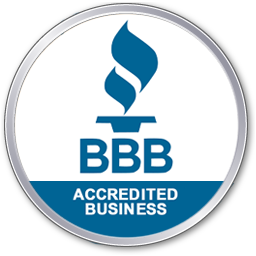Underground storage tanks (USTs) are needed for storing various substances, including fuel, gas, oil, and more. USTs are essential for various industries, as they are used by gas stations, manufacturing facilities, and agricultural operations, among others.
However, as valuable as these tanks are, it’s essential that owners are aware of the risk of a leaking UST. Leaking underground storage tanks could result in several consequences, both for the property owner and the environment. As a result, it is crucial to identify a leaking storage tank as soon as possible to address the issue. Fortunately, knowing what signs to look for and what procedures to follow can help you avoid further damage.
Common Signs and Indicators of Leaks in USTs
Leaks can be frustrating and difficult to diagnose, but there are a few signs that will allow you to catch a leak early. The following three signs are some of the most significant indicators that can help you spot a UST leak.
1. Unusual Odors
The scent of gasoline, diesel, or materials contained in a UST may be one of the first signs of a leak. Of course, the smell will depend on what you have stored in your tank—be vigilant if there is an unusual increase in the smell of chemicals. These odors will likely be noticeable around the location of the UST or the UST vents.
If you notice any suspicious smells, you should report them to the authorities and contact experts who have experience working with USTs. Suspicious smells will justify further testing so you can determine for sure whether there is a leak.
2. Fuel Loss
A sudden or inexplicable drop in inventory may be another sign of a fuel or storage tank leak. If a leak is present, there is a good chance you will notice it – even a pin-sized hole can leak up to 400 gallons of fuel per year.
Leaks can occur for a variety of reasons, including:
- Tank corrosion
- Mechanical failure
- Structural damage to the tank walls
- Small cracks
- Faulty fittings
To stay on top of the risk of a UST leak, owners and operators should consistently monitor their inventory levels and note any unexpected changes. Any inexplicable loss of inventory warrants additional testing.
3. Changes in Groundwater Quality
The purpose of an underground storage tank is to keep hazardous materials away from natural resources like surrounding soil and groundwater. Therefore, if you notice any changes in groundwater quality, then there is a high likelihood that the tank is no longer doing this job effectively.
Some indicators that can highlight a change in groundwater quality include:
- Changes in water color or clarity
- Poor tasting or discolored well water
- Presence of oil slicks in standing water
- Dead vegetation above or around your storage tank
- Dark spots on the ground
With the above risks, you should consider testing the quality of your well water regularly. Regular testing will allow you to catch any minor issues or leaks before they become more significant.
Testing Methods for Identifying Leaks in USTs
Sometimes, the above signs are not enough to determine whether a tank is leaking. In some cases, they may not be present at all. In order to identify potential leaks in a UST with more certainty, you must have the proper testing methods at hand. Identifying leaks in USTs typically boils down to a process called site characterization, which involves gathering information and data at the site of contamination.
Soil Sampling
One of the first effects of a leaking UST is that the contents will leach into the surrounding soil. Therefore, soil sampling is a straightforward way to identify the concentration of any pollutants and highlight whether your tank has an issue.
It’s best to trust experienced professionals with this process as they will know the best practices for measuring the soil, as well as for handling and labeling samples in a manner that ensures accurate laboratory analysis. They will also have access to tools like soil probes and augers to extract the samples.
Altogether, an expert technician will:
- Collect a soil sample at the appropriate location and depth
- Carefully handle and label the sample
- Send the results to a laboratory for interpretation
Laboratory testing will accurately identify the presence of leaked substances by identifying compounds like petroleum hydrocarbons and other pollutants. Accurate testing done in a laboratory environment can help highlight the severity of the contamination so you can take further action.
Groundwater Sampling
Since groundwater is next affected after the soil and is a vital resource for communities, adequate testing is essential for identifying leaks. Early detection is crucial for preventing the spread of pollutants through groundwater into other water systems and resources.
To collect groundwater samples, experts will:
- Purge stagnant water from a well so that it is replaced by surrounding groundwater
- Use tools like a bailer pump or peristaltic pump to remove the groundwater from the well without the sample becoming contaminated
- Send the sample to a laboratory to analyze the sample and test for petroleum compounds, heavy metals, or other contaminants
- Compare the results against established thresholds for regulatory compliance
As with soil testing, laboratory sampling is an accurate and reliable method for identifying pollutants in groundwater and signifying a greater leak. Appropriate testing will either provide you peace of mind or allow you to take further steps to address the issue.
What Problems Do Leaking Underground Storage Tanks Cause?
Unfortunately, a leaking UST can turn from a minor issue to a significant one pretty quickly, as a leak has both environmental and financial implications. Identifying and addressing a leaking UST early is essential for protecting property owners from the following consequences.
Impact on Soil and Water Quality
One of the most considerable consequences of a leaking UST is its impact on the surrounding environment. Toxins that leak from a UST can quickly move through the soil, pollute groundwater, and spread to other resources. Even small leaks can have significant effects on the environment.
Contamination of soil and groundwater can be damaging to vegetation growth and cause a wide range of health concerns if humans are exposed. With a large number of communities in the US reliant on groundwater for drinking, the effects of toxins from leaking USTs can have an even more widespread impact on public health.
These intensive risks highlight the importance of urgent action and proper UST management.
Legal and Regulatory Consequences
Given the environmental risks of a leaking UST, there are several important regulations surrounding USTs, and the impact of a leaking UST can result in significant legal consequences. The most common are fines and penalties, which can potentially add up to thousands of dollars, especially if you do not take prompt action to address the issue.
The largest regulatory body over USTs is the Environmental Protection Agency (EPA). The EPA may take enforcement action through the Leaking UST program (LUST) with the help of local or state regulatory agencies. The EPA will take action against owners and operators to ensure timely cleanup of contaminations.
Through the Resource Conservation and Recovery Act, the EPA may also require owners to:
- Carry out investigative studies
- Take action to fix the tank and clean up leaked contaminants
- Close and decommission the tank entirely
The EPA designates that noncompliance with an order under the RCRA can lead to fines as high as $37,500 per day. In the event of a leak, it’s important that owners and operators cooperate with regulatory authorities throughout the process to ensure that they are following all guidelines and complying with all regulations to minimize further consequences.
Financial Burdens
In addition to the risk of having to pay for fines associated with a leaking storage tank, there are also several other potential financial effects that come with addressing and mitigating the damage.
A leaking storage tank may also require other costs, like:
- Additional testing to understand the extent of the contamination
- Tank replacement
- Clean-up of the contamination
- Soil remediation
- Groundwater treatment
In addition to the above costs, owners must also factor in the potential legal liabilities and costs. If a leak causes significant damage to neighboring properties or local resources, then the tank owner may be held liable, especially if they did not invest in regular maintenance.
Property owners can be proactive by finding insurance coverage and researching policies to find one that covers USTs and can help manage financial responsibility requirements associated with a leak.
Of course, the most essential step for being proactive is having your tank regularly inspected to avoid financial burdens altogether.
Stay on Top of Leaks with Alpha Environmental
A leaking underground storage tank can have harsh consequences, but staying on top of maintenance and knowing the signs of a leak can go a long way in preventing the worst. However, it may take a trained eye to identify a leak. The best way to address leaks and ensure that your tank is in working condition is to rely on the experts.
At Alpha Environmental, our team of experts provides an array of services to help you manage your underground storage or heating oil tank, including soil sampling and tank decommissioning. If you think that your property may have a UST but are not sure, then our team of licensed and certified technicians will scan for USTs or heating oil tanks.
Contact Alpha Environmental today for help managing your underground storage tank in Portland, OR.




